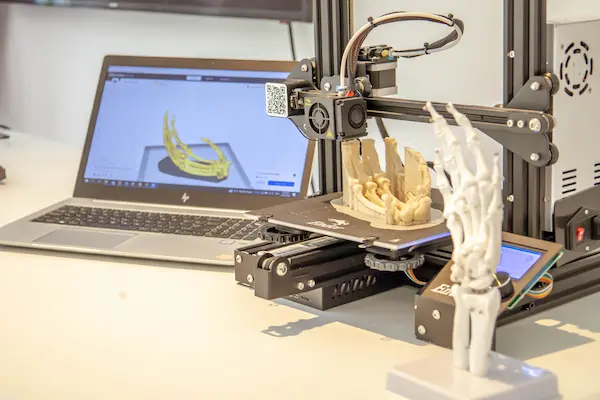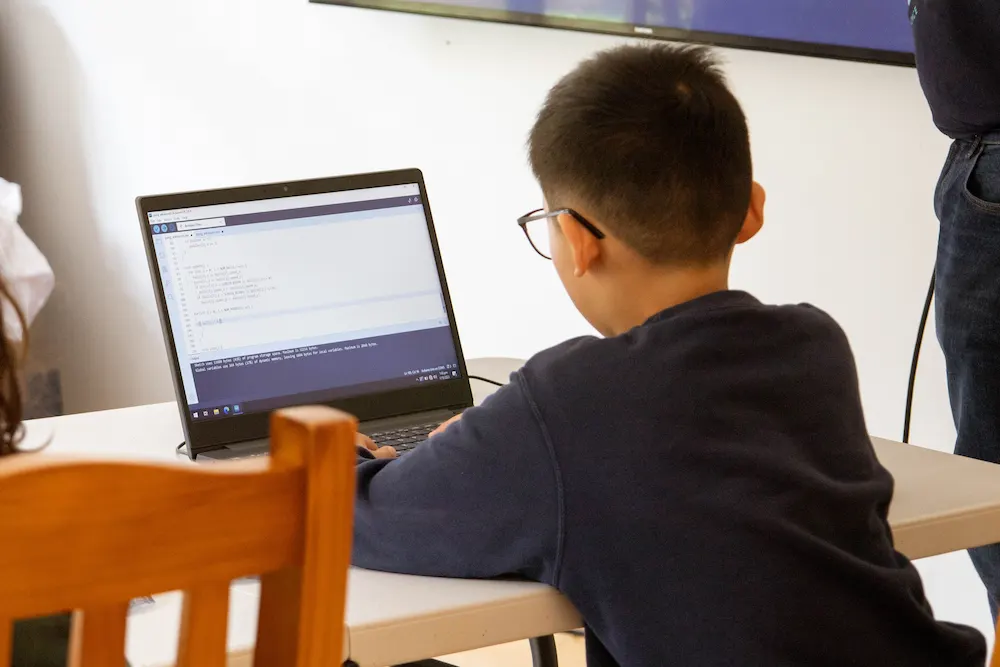Technology and Computer Science at The Academy
"I have not failed. I've just found 10,000 ways that won't work." - Thomas Edison
At The Academy, students delve deeply into how/why technology works and how to push its boundaries. Our goal is to peel back the layers of abstraction, revealing the inner workings of digital systems, the principles that drive artificial intelligence, and the foundational logic behind programming and electronics.
Technology and Computer Science at The Academy is woven into every subject. In English, students publish essays, creative writing, and digital media on their own custom-built personal websites. In Science, they engineer electronic measuring equipment to assist in experiments. In Mathematics, students develop a growing library of programming functions to model and test new theorems. In Biology, they create remote monitoring systems for field research. In Physics, they simulate physical laws and build interactive 3D environments in their own game engines.

"Technology is nothing. What's important is that you have a faith in people, that they're basically good and smart, and if you give them tools, they'll do wonderful things with them." - Steve Jobs
This interdisciplinary approach ensures that students see technology as a tool to extend human potential, not just a subject in isolation. By the time they graduate, they will have built an extensive portfolio of documented projects—software applications, electronics prototypes, and AI-driven models—hosted on GitHub as a digital CV that showcases their expertise to the world.
Our curriculum is designed in collaboration with leading industry experts, including Jonathan Rogers (Managing Director of Grinding Gear Games) and Samuel Crookes (Managing Director of Warp Speed Computers). We ensure students are not only trained in technical skills but also in scalability, commercialisation, and ethical technology development. Students will explore how the world’s greatest tech companies grew from simple ideas into global platforms, and they will have the opportunity to apply this mindset to their own creations.
Through participation in coding competitions, hackathons, and open-source collaborations, students refine their skills in real-world environments. They will have access to internship opportunities, mentorships with industry experts, and the chance to contribute to projects with meaningful impact.
"All aspiring entrepreneurs should remember that failure doesn't mean the end of the road. It can lay the groundwork for something even greater." - Reshma Saujani, Founder of Girls Who Code
The Technology curriculum also has a significant embedded focus on digital security and online safety.
Guiding Principles for Programming and Electronics at The Academy:
- Programming is taught with a ‘no black box’ approach. Students learn to build their own solutions with minimal reliance on external libraries, developing deep problem-solving abilities rather than relying on shortcuts.
- Mastery in multiple programming languages. The Academy focuses on JavaScript, C++, and Python, ensuring students develop versatility across web development, high-performance computing, and scientific analysis.
- Computational Thinking is central to problem-solving. Through LeetCode, Codeforces, and HackerRank, students regularly engage in algorithmic challenges, honing their ability to break down complex problems into elegant solutions.
- Building AI systems from scratch. Students train their own machine learning models, explore neural networks, and implement AI-driven projects, from chatbots to computer vision applications.
- Robotics and electronics theory and practice. Students build autonomous systems, create IoT devices, and experiment with embedded computing—gaining the hands-on experience necessary to innovate in the rapidly growing field of intelligent hardware.
- Human creativity, ethical reasoning, and capacity for deep understanding must remain at the heart of technological progress. Our curriculum is designed to ensure that students are not just users of AI, but informed creators and critical thinkers who shape its development responsibly.
- The goal of technology is to positively benefit humanity.
"Technology should improve your life… not become your life." - Billy Cox

